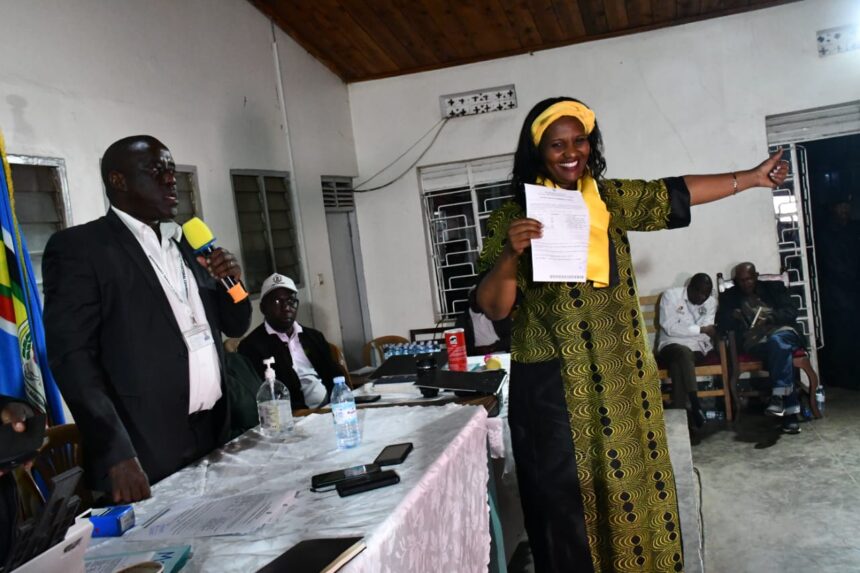Following the National Resistance Movement’s (NRM) shocking defeat in the Kisoro District Woman MP by-election, Agriculture Minister Hon. Frank Tumwebaze has called for a critical re-evaluation of the party’s primary elections, questioning their effectiveness in fostering unity and internal cohesion.
The recently concluded Kisoro District Woman MP by-election has ignited debate within the ruling NRM, after independent candidate Grace Akifeza Ngabirano defeated the party’s flagbearer, Rose Kabagyeni, despite a vigorous campaign.
The loss, coupled with allegations of bribery and electoral malpractice, has prompted Minister Frank Tumwebaze to call for a major overhaul of the NRM’s internal election processes.

Tumwebaze, speaking candidly about the matter, questioned whether the party’s primaries still serve their intended purpose. “It’s time for us in NRM to re-examine whether our primary elections still serve the purpose… Do they enable us to achieve internal party cohesion? Are they a uniting or divisive factor? What if we amended the Political Organizations Act (POA) to allow parties to make selections?” he suggested.
The by-election, held in a politically charged atmosphere, featured candidates from various political parties, including the National Unity Platform’s Zubedi Sultana Salim, the Forum for Democratic Change’s Juliet Musanase, and Aisha Cyimpaye of the People’s Progressive Party. Despite the NRM’s dominance in the region, the party faced stiff competition, with Ngabirano’s victory underscoring growing dissatisfaction within the electorate.
NRM’s loss has sparked conversations about the transparency and inclusiveness of its primaries. Allegations of vote-buying and internal wrangling often leave disgruntled candidates opting to run as independents, dividing the party’s support base and complicating its electoral strategies.
Tumwebaze’s proposal to amend the Political Organizations Act could allow political parties to bypass primaries and directly select candidates, reducing internal conflicts. However, such a move could raise questions about democratic participation within parties and might face resistance from party members and opposition groups.
The by-election results have also raised broader concerns about the NRM’s ability to maintain its stronghold in key regions as Uganda approaches the 2026 general elections. Political analysts argue that reforming internal processes will be critical to restoring confidence among party members and supporters.

As debates on the future of NRM primaries unfold, the party faces mounting pressure to address internal divisions and enhance transparency in its electoral processes. Tumwebaze’s call for change could signal a pivotal moment for the ruling party, as it grapples with adapting to the evolving political landscape in Uganda.








